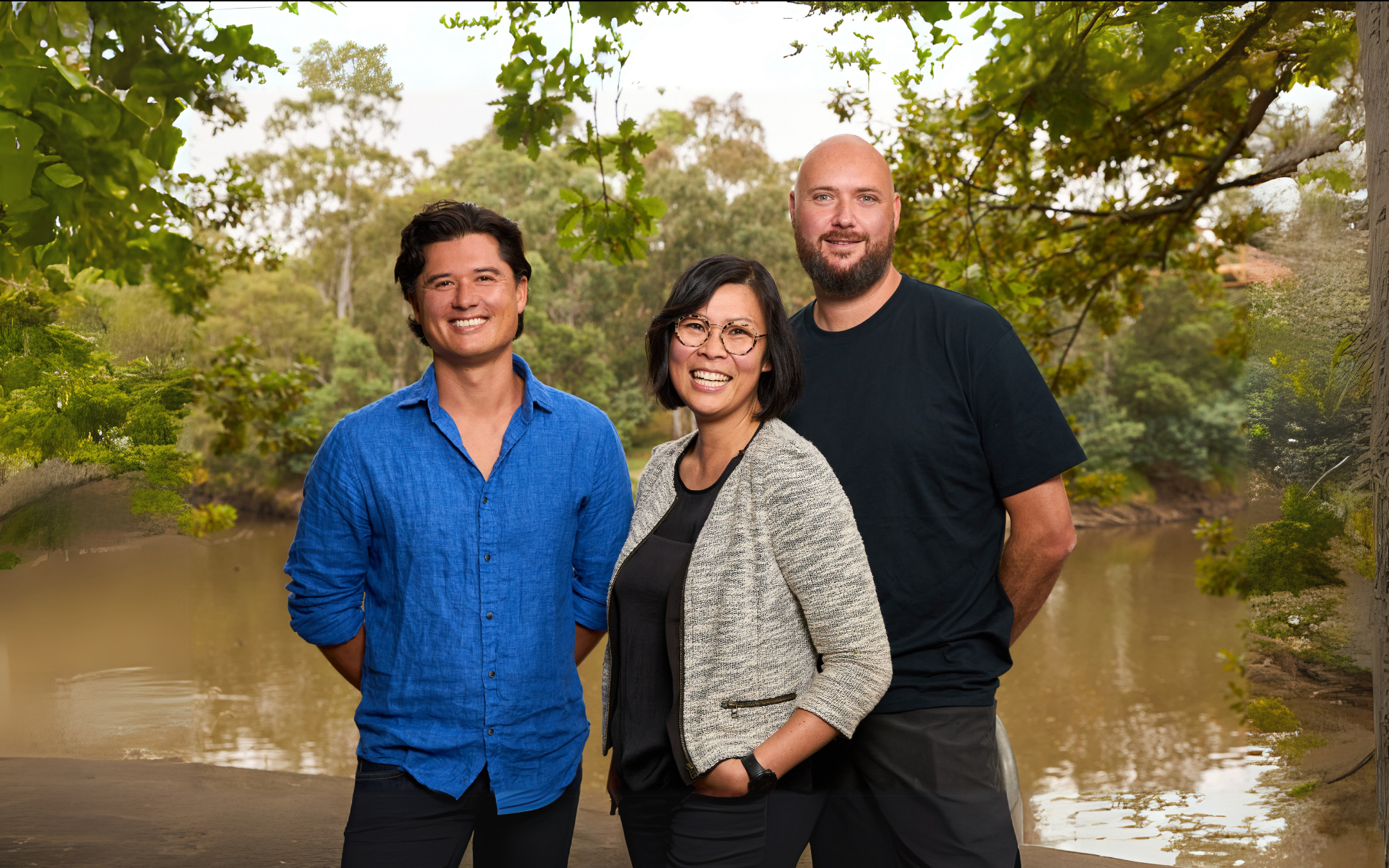We all know that today’s macroeconomic environment has made securing funding a daunting task. Climate Salad’s recent 2023 Australian Climate Tech Industry Report notes that the number one challenge climate tech founders are facing is finding investment, followed by finding customers and recruiting talented staff. The current market downturn has made raising more difficult and more funding is needed at every stage.
We recently held office hours to chat with some of Climate Salad’s awesome climate-tech founders, including many outstanding women entrepreneurs, to answer their questions about navigating the funding landscape.
We found that the same four questions came up in every chat we had -- so we thought we’d share them, and our answers, in the very likely event that someone else out there is asking them too.
1. What’s your mandate and are we values-aligned?
It goes without saying that climate tech founders are a mission-driven bunch, and it’s therefore no wonder that the first question founders asked was invariably, ‘what’s your investment mandate and your values, and how do they align with what I’m doing?’
Founders want to know that investors care as much about their mission as they do, so they can be confident that they won’t be pressured into pursuing commercial gains at the expense of climate impact. Values-aligned capital sees impact and profit as inherently linked and as working in tandem, creating a win-win-win for the startup, the investors and the planet.
So what are we looking for at Giant Leap?
Mandate
We invest across four key impact areas: climate, health, education and equality. Our approach to the climate space is broad, with past investments including clean-tech, energy, circular economy and waste reduction solutions, carbon accounting tech, sustainable agriculture & water use, and climate-positive food tech.
In addition to fitting within one of these themes, we need a ‘hell yes!’ to each of the following three questions to pass our impact screen:
- Is the impact baked into the business model (i.e., is every dollar of revenue generated inherently linked to a measurable unit of positive environmental or social impact)?
- Does the founder show clear passion for and connection with the impact mission?
- Can the impact be measured (e.g., tonnes of carbon emissions or tonnes of waste avoided or diverted from landfill)?
Stage
We are early stage investors, predominantly investing at Seed and Series A. What does this actually mean?
We think of the Seed stage as having a built product, evidence of early product market fit, some early revenues, and evidence of positive early growth. Series A is where we’re seeing consistent and growing revenues, backed by a sales engine that is picking up pace.
We’re often asked whether we have clear revenue milestones or metrics that founders should aim for at each stage, but to be honest, what this looks like is highly dependent on the sector, the vertical and each individual business. Each stage is really about risk - a pre-seed business carries more risk than a Seed stage business, and the same for Seed as compared to Series A.
If you’re not sure about what stage you’re at, it’s never too early to reach out – we’d love to chat and get to know you over time as you grow.
Values
As impact investors, we back game-changing, mission-driven founders solving the world’s most pressing problems – the ones re-imagining industries and using business as a force for good. Our team’s core values, which we’re proud that all of our portfolio founders share, are:
- Act with radical candour – Care personally and challenge directly. We value self-awareness and acknowledge we don’t know all the answers. We trust others to highlight opportunities and blind spots that we can’t see.
- Think with an abundance mindset – We seek to be generous and without expectation or ego when giving to others. We believe that a rising tide will lift all boats. We value collaboration and seek to grow the pie.
- Lead by example – We exist to demonstrate the power of startups to solve the world’s problems to guide us to a cleaner, healthier, happier future. We act with courage, integrity and kindness to challenge the status quo.
- Play the long game – We are strategic in our decision-making and think about the consequences of our actions and inactions. We respect the past, present and future.
- Be human – We value human connection and seek joy in life. We understand the importance of relationships and acknowledge we are only one piece of the puzzle. Without others, there is no self.
2. What’s your cheque size and do you lead rounds?
Time to talk money – and that’s OK, we know what you’re really here for! 👀
While our investment sizes do vary, our typical investment amount at the Seed stage is $300k, and $1m for Series A companies.
We’re very happy to lead a round for the right company, as long as it makes sense for us to do so given the round size and our investment size.
3. Let’s talk about ‘traction’ – what is it and what do investors really mean when they say they want to see more of it?
‘Traction’ refers to the measurable progress and momentum a startup has achieved in terms of customer adoption, revenue generation, market share and other early indicators of the potential for success and scalability. At its heart, we’re looking for evidence that a startup’s product or service is gaining market acceptance and is moving towards sustainable growth.
Some common examples of traction you may be able to show include:
- Monthly recurring revenue (MRR) – we love to see clearly labelled graphs showing growth over time! 📊
- Customer acquisition cost (CAC) and Customer Lifetime Value (CLV) – wanting to see that the cost of bringing in customers is reasonable in relation to the long-term value those customers bring to the business
- Number of active users or customers
- Details of your customer pipeline and time taken to convert to live customers
- Churn – a low churn rate indicates customer retention
- Net Promoter Score (NPS)
Which of these are relevant (and there are many others as well) will depend entirely on your business model and sector.
You may have had investors tell you that they’re looking for more traction in the current market than they were at the height of the funding boom in 2021. This is really a reflection of the relationship to risk in the current macroeconomic environment. Startups with strong traction are demonstrating that there’s genuine demand for their products or services and are proving resilience to market conditions.
When we ask for traction, we’re looking for evidence that you’re able to successfully and quickly execute on your vision. It doesn’t matter which metrics apply and there aren’t any set numbers to meet – we’re far more interested in impressive growth over time than in the raw figures themselves. A great way to show this, again, is with clearly labelled graphs showing positive movement 📈.
4. How is the climate tech sector faring in the current market?
In uncertain economic times, climate tech founders have understandably been seeking clarity on whether climate-focused solutions have remained resilient to the market downturn. The answer is YES – climate tech is still going strong!
According to KPMG’s recent 2023 Q2 Venture Pulse Report, venture funding going to climate tech solutions, particularly in energy, has remained strong despite the overall drop in investments made this year. The ongoing war in the Ukraine and increased commitment to cleantech in many countries has driven significant investor interest over the past 18 months, with this trend continuing this quarter. VC funds have invested in a variety of energy solutions including renewables, decarbonisation solutions, EV infrastructure, green finance and battery storage solutions.
This continues the trend we reflected on in our 2023 Impact Startups Benchmark Report, with the climate crisis being a key driver of growth for impact startups and climate tech bucking broader bearish market trends.
Closing thoughts
While founders are facing clear challenges at the moment, we’re confident that the opportunity for amazing climate tech startups has never been greater. Our key tip for pitching for investment in this market – emphasise the evidence you have of your progress over time and of your ability to fearlessly execute on your mission.
.png)


.JPG)



%20-%20Edited.jpg)
